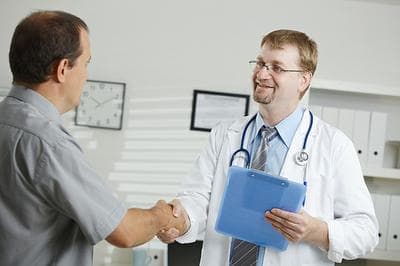Advertisement
Free Health Clinics Fill The Gap For Uninsured
Massachusetts tops the nation when it comes to residents with health insurance. Still about 277,000 men women and children in the state remain uninsured. How do they get medical care?
 WBUR's Martha Bebinger reports that "a loose-knit network of free clinics in churches, synagogues and vacant offices around the state — often run by retired doctors and nurses — is quietly caring for many of these patients."
WBUR's Martha Bebinger reports that "a loose-knit network of free clinics in churches, synagogues and vacant offices around the state — often run by retired doctors and nurses — is quietly caring for many of these patients."Here's a bit of her story this morning:
"The flu season this year is really bad, and there are flu shots available. Who’s interested?” asks Julia Koehler, in Portuguese and English, as she glances from one weary or pale face to another. Twenty-one men, women and children sink into folding chairs in a hallway at Congregation Beth El in Sudbury. On this night, the hallway lined with folding chairs has become a makeshift waiting room.
Free flu shots are a bonus on this night for patients who’ve come in with a sprained back, dizziness or a feeling that their diabetes is getting worse.
“Now, have you lost any weight?” Dr. Dick Wolk asks as he waits for an interpreter to translate his question into Portuguese.
“No,” his patient says sheepishly.
Wolk wags a long finger at the admittedly overweight woman he’s brought to his “office” — a card table behind a striped cloth folding screen. Wolk’s patient wants to know if she’s taking the right pills to control her diabetes.
“We can give you all the pills in the world, but only you can lose weight. It’s up to you,” he says. “There is only so much medicine can do.” The patient promises Wolk she’ll pay more attention to calories and get more exercise.
Wolk is one of seven to nine physicians (most are retired) who spend their Tuesday evenings treating patients at what’s become known as the MetroWest Free Medical Program, in the temple sanctuary.
“All of the chairs (in churches it would be pews) have been removed by a volunteer crew that came in in the late afternoon,” Wolk says, gesturing across the room. “On the one end is pharmacy education,” where students from the Massachusetts College of Pharmacy check and write prescriptions.
A local Stop & Shop stores medicines for the clinic, at no charge. The Massachusetts Medical Society cover the doctors’ liability insurance and MetroWest Medical Center provides free lab work and X-rays. There’s a crew of nurses, interpreters, social workers and a physical therapist — about 35 volunteers on any given clinic night.
“At the other end of the room, you have a table with a nutritionist,” says Wolk, continuing his visual tour. “Above her, on an elevated platform that is usually used for services, we have a social services team that helps patients apply for food stamps, heating assistance and health insurance.”
Nurse Pam McGrath updates patient files at a table near the entrance. “I feel very strongly about paying forward,” says McGrath, who started volunteering at the clinic three years ago, shortly after her daughter survived a serious car accident.
“She should not have lived,” McGrath says. “So when I was taking care of her, and we realized that it was going to be OK, I got online and was looking for a program to volunteer with and I found this one.”
Now McGrath is paid, one of three part-timers. The clinic raises about $150,000 a year for employees and supplies. McGrath’s job is to make sure patients follow the doctor’s orders.
“Things that we would normally take for granted you can’t take for granted anymore,” she says. “You know, take it with milk. Can you afford milk three times a day, is that something your family can do?” If they can’t, McGrath makes sure the patient has milk.
This program aired on January 22, 2013. The audio for this program is not available.